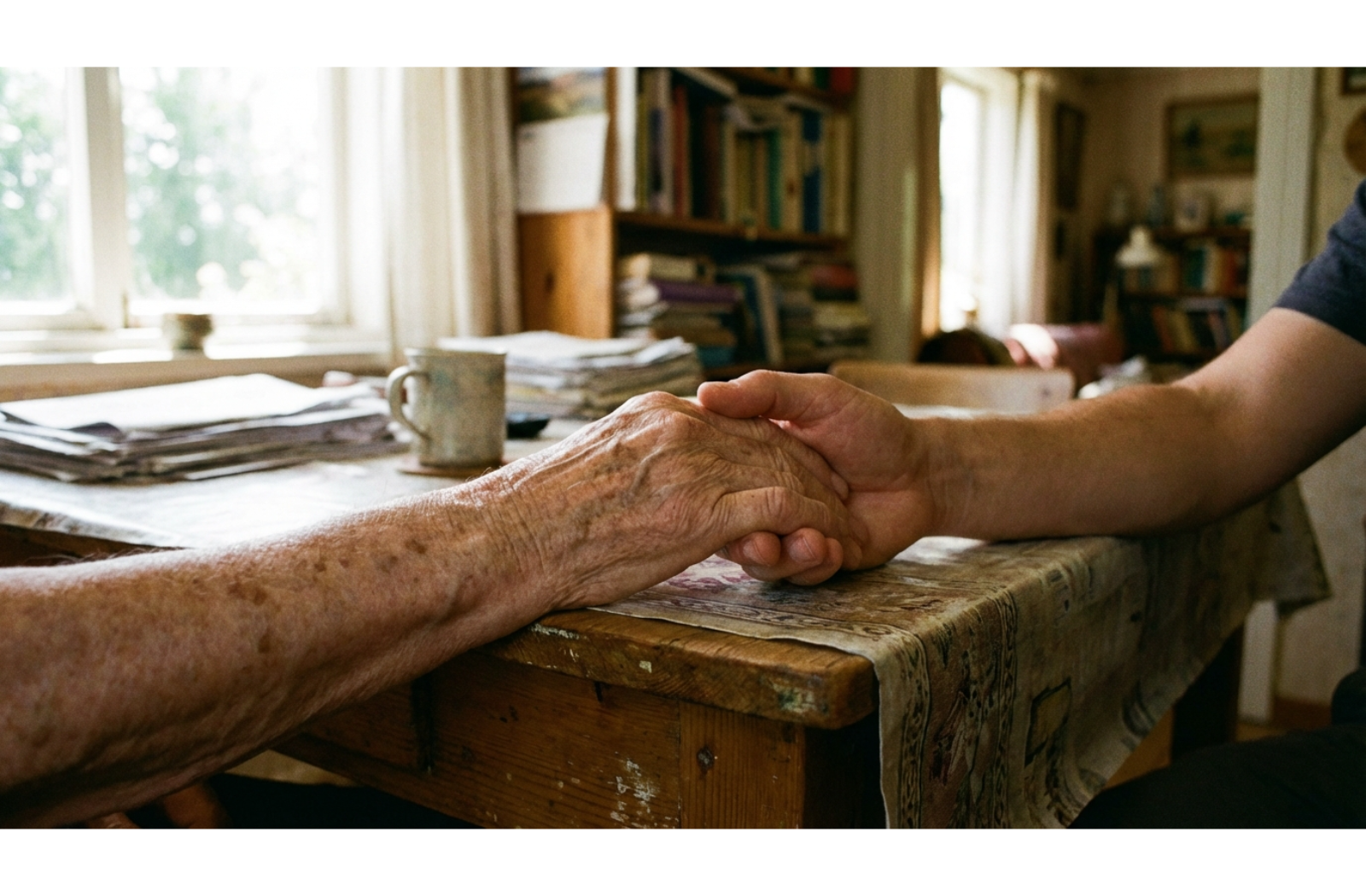5 Warning Signs You Need a Break from Caregiving
- Posted on
- By Mira Vie Senior Living

Caregiving for a loved one can be one of the most rewarding roles you’ll ever take on. It can also be one of the most emotionally and physically demanding. While your dedication to your loved one speaks volumes, even the most compassionate caregivers need time to recharge. Luckily, some senior living communities offer respite care options, so your loved one can experience high-quality care while you rest.
Neglecting your well-being can lead to burnout, which affects both you and the quality of care you provide. But how do you know when it’s time to pause and refocus on yourself? Here are 5 warning signs that you might need a break from caregiving:
- You’re constantly exhausted.
- You’re easily irritated.
- You stop prioritizing your health.
- You feel depressed and disconnected.
- You’re losing sight of “you.”
1. You’re Feeling Constantly Exhausted
Do you wake up each morning already feeling worn out? Extreme fatigue is one of the earliest indicators of caregiver burnout. Caregiving often involves juggling multiple responsibilities, from medical appointments and emotional support to day-to-day household tasks. Over time, this constant demand on your energy levels can leave you depleted.
Physical exhaustion can also lead to mental fatigue, making simple decisions feel overwhelming. If you find yourself so tired that it’s hard to concentrate or stay motivated, this is a clear signal your body is crying out for rest.
What to do:
Start by carving out time to recharge daily. Whether it’s a 15-minute walk, a quiet moment with a cup of tea, or a few deep breaths, these small practices can help you reset. If possible, consider asking a friend or family member to step in so you can take an afternoon off.
2. You’re Becoming Easily Irritated
Do you find yourself snapping at loved ones or feeling more impatient than usual? Emotional changes like irritability or anger can occur when caregiving stress becomes overwhelming. This isn’t a reflection of your character or love for your family member; it’s an alarm bell signaling you may need support. Suppressing these feelings often compounds the stress, leading to further frustration.
What to do:
Recognize these emotions as valid and important. Try journaling or talking to a trusted friend to process your feelings. Counseling or support groups for caregivers can also provide valuable insights and emotional relief.
3. Your Health is Taking a Backseat
Caregivers often prioritize the needs of others over their own, which can lead to skipped meals, neglected exercise, and less-than-ideal sleep patterns. Over time, this can spiral into a decline in both your physical and emotional well-being. Remember that you’re the foundation of the care you provide—your own health matters tremendously.
Warning signs include frequent headaches, stomach issues, worsening chronic health conditions, or a general feeling of being unwell. Without proper care for your body, it won’t be long before you feel completely run down.
What to do:
Schedule time for regular exercise. Even a short walk outdoors can make a big difference. Don’t skip those checkups with your doctor, and aim to create a bedtime routine that ensures consistent sleep. Healthy meals don’t have to be complicated; stock up on simple, nutritious snacks that keep you fueled throughout the day.
4. You Feel Depressed & Disconnected
Have you been feeling numb, hopeless, or like you’re just going through the motions? Many caregivers experience depression as the emotional weight of caregiving takes its toll. It’s not uncommon to feel isolated, especially if caregiving has consumed time you’d typically spend socializing or pursuing personal interests.
While periods of sadness are normal, ongoing feelings of disconnection or apathy shouldn’t be ignored. Your mental health is crucial not just for you, but for maintaining the emotional strength caregiving requires.
What to do:
Reconnect with activities that bring you joy or fulfillment. Whether it’s reading, gardening, or spending time with a friend, make these a priority. Don’t hesitate to seek professional help if feelings of depression persist. A therapist specializing in caregiver support can help you work through these emotions.
5. You’re Losing Sight of “You”
When was the last time you did something just for yourself? Too often, caregivers sideline their own identity in service of others. Over time, this can lead to a loss of self. If you can’t remember the last time you pursued a personal goal, hobby, or even just had a moment to reflect, it’s time to reset.
Caregiving isn’t about giving all of yourself until there’s nothing left; it’s about striking a balance. You’re more than just a caregiver, and it’s okay to reclaim the parts of your life that may have taken a backseat.
What to do:
Take a step back and remind yourself that it’s okay to set boundaries. Ask for help or explore respite care options. At Mira Vie Senior Living, we offer short-term respite care services designed to give caregivers like you the time and space to recharge while ensuring that your loved one continues to receive exceptional care.
How Mira Vie Senior Living Can Support You
Recognizing that you need a break isn’t a sign of weakness; it’s a sign of strength and self-awareness. At Mira Vie Senior Living, we’re here to help alleviate the pressures of caregiving. Whether it’s exploring our respite care programs or learning more about our supportive senior living options, we’re committed to helping both you and your loved ones thrive.
Feeling stretched thin? You don’t have to do this alone. Reach out to us today and discover how we can support you every step of the way.
Related Articles

Understanding Various Types of Assisted Living Contracts
Key Takeaways Senior living communities offer several contract types, including those with large entrance payments